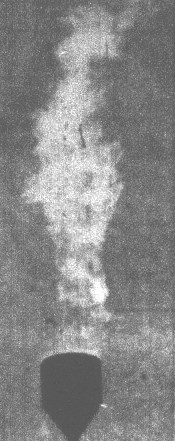| In little more than a week the flickering of yellow flames
from stand-pipe burners in the streets of Barwick-in-Elmet
and Aberford will signify the arrival of North Sea Gas to the
area. The flames will changes from blue to yellow in the
burners - spaced out along the streets like so many Olympic
torches - when the last of the "old gas" has been purgedfrom
the gas pipes of the village. It is fitting that those two
villages, with their roots so deep in the past, should be the
first to make use of the pure, clean natural gas that has
accumulated deep below the bed of the North Seafor millions
of years. In the three weeks that follow the conversion of
these two villages the whole of Garforth, and most of its
surrounding communities, will be receiving the substance that
has revolutionised the British Gas Industry since the first
major strike under the North sea in 1965. |

